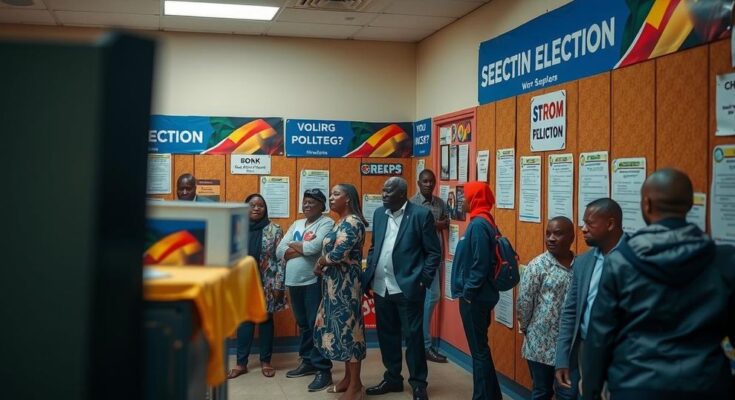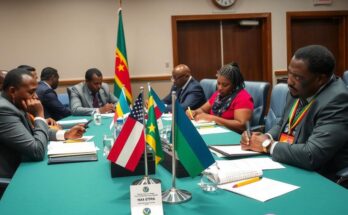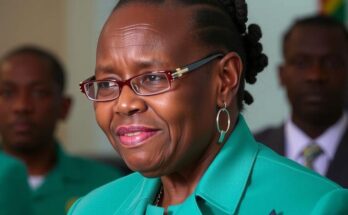Namibia’s voting period for the presidential and parliamentary elections has been extended until Saturday due to ballot paper shortages, provoking claims of illegality from opposition parties. Amid logistical challenges, voters continue to experience long wait times at polling stations. The ruling SWAPO party’s candidate, Netumbo Nandi-Ndaitwah, is seeking to become the nation’s first female president in a politically tense atmosphere influenced by high unemployment and economic hardship.
Namibia’s electoral agency has decided to extend the voting period for the presidential and parliamentary elections due to significant logistical problems, specifically a shortage of ballot papers. Originally scheduled to conclude on Wednesday, voting will now continue until Saturday evening. This extension has sparked allegations of illegality and potential fraud from the opposition party, the Independent Patriots for Change. Many voters have expressed frustration as they were unable to cast their votes, leading to long queues at polling stations, particularly in remote areas that awaited ballot paper deliveries.
Amid these challenges, the vice president, Netumbo Nandi-Ndaitwah, representing the ruling South West Africa People’s Organization (SWAPO), is running for the presidency. Should she win, she would make history as Namibia’s first female leader. However, the opposition is gaining traction amid widespread dissatisfaction with unemployment and economic inequality in a country rich in minerals. Electoral officials reported that many voters had yet to participate in the elections, and overwhelming queues depicted the ongoing struggle for some to make their voices heard in the ongoing democratic process.
Namibia’s current electoral situation reflects a broader context of political transition and dissatisfaction within the southern African nation. Following a history as a former German colony and subsequent South African control, Namibia gained independence in 1990. SWAPO has held a dominant position since then, steering the country through decades of stability. However, the challenges of unemployment and economic disparity, particularly among the youth, have begun to challenge long-standing political loyalties, paralleling trends seen in other nations in the region.
The extension of the voting period in Namibia has highlighted underlying electoral challenges and the growing dissent among voters, particularly the youth, regarding the ruling party’s ability to address pressing economic issues. As the situation unfolds, attention will undoubtedly turn to both the outcome of the elections and the implications of these logistical challenges for Namibia’s democratic integrity.
Original Source: apnews.com




